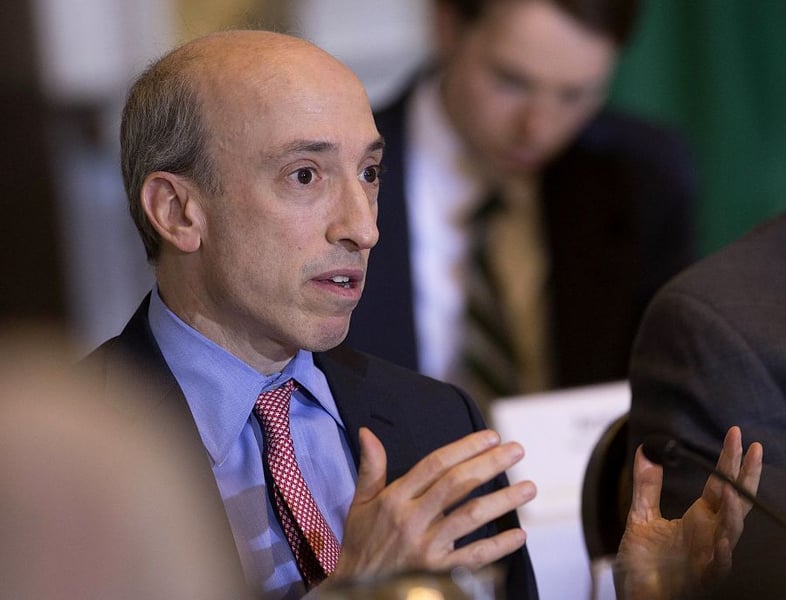

Publicly traded companies need to avoid “AI washing” when talking to investors about their use of the technology, according to the head of the Securities and Exchange Commission.
SEC chair Gary Gensler said Tuesday that companies must clarify for investors what they mean when referring to artificial intelligence. Corporations need to be specific about how they’re using it, risks to operations, and decide if executives’ comments regarding the technology must be disclosed to investors.
“As AI disclosures by SEC registrants increase, the basics of good securities lawyering still apply,” Gary Gensler said in a speech at Yale Law School.
Companies from a range of industries have been advertising how they’re harnessing AI to improve operations. More than 40% of S&P 500 companies discussed the technology in their annual reports to the SEC, according to a recent Bloomberg Law analysis. Financial firms are also harnessing the technology for everything from lending to trade recommendations.
Gensler has previously called AI the “transformative technology of this generation,” but he has also warned about dangers it could pose to financial stability. The SEC recently proposed new regulations to crack down on how brokerages and investment firms use the technology.
Industry groups like the American Securities Association, which represents financial advisers, have critiqued the proposal as being so broad as to prevent most firms from communicating with their clients.
During his speech on Tuesday, the SEC chair again warned about the technology’s potential impact on financial stability. He expressed concerns about the prospect of thousands of financial institutions all using the same underlying AI models furthering biases. Concentration in AI providers is almost certain to happen due to economics of scale and network effects, he cautioned.

A Texas-based bank selects Raymond James for a $605 million program, while an OSJ with Osaic lures a storied institution in Ohio from LPL.

The Treasury Secretary's suggestion that Trump Savings Accounts could be used as a "backdoor" drew sharp criticisms from AARP and Democratic lawmakers.

Changes in legislation or additional laws historically have created opportunities for the alternative investment marketplace to expand.

Wealth managers highlight strategies for clients trying to retire before 65 without running out of money.

Shares of the online brokerage jumped as it reported a surge in trading, counting crypto transactions, though analysts remained largely unmoved.
Orion's Tom Wilson on delivering coordinated, high-touch service in a world where returns alone no longer set you apart.
Barely a decade old, registered index-linked annuities have quickly surged in popularity, thanks to their unique blend of protection and growth potential—an appealing option for investors looking to chart a steadier course through today's choppy market waters, says Myles Lambert, Brighthouse Financial.
